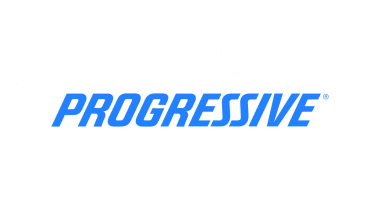Uncover the earnings of life insurance agents and discover the factors that impact their income. Understanding how much life insurance agents make is essential to our financial security. In this article, you can also discover factors influencing insurance agent earnings that are not limited to age, experience, sales performance, and so on. Younger agents may have lower earnings initially, while experienced agents may have higher potential. Sales performance, client base, and product mix also play a role in earnings.
How Much Do Life Insurance Agents Make?
Life insurance agents can earn varying amounts depending on factors such as their experience, location, and the type of insurance they sell.
Here are some key points to consider:
Factors Affecting Life Insurance Agent Earnings
The key factors that can affect life insurance agent earnings are
#1. Age
Age can be a significant factor affecting life insurance agent earnings. Younger agents may have lower earnings initially, as they are building their client base and gaining experience. As agents gain more experience and establish a larger client portfolio, their earnings potential may increase.
#2. Experience and Expertise
The level of experience and expertise of a life insurance agent can impact their earnings. Agents who have been in the industry for a longer time and have a deep understanding of the products and market trends may have higher earnings potential.
#3. Sales Performance
The sales performance of a life insurance agent is a crucial factor in determining their earnings. Agents who consistently meet or exceed their sales targets and bring in new clients may earn higher commissions and bonuses.
#4. Client Base
The size and quality of a life insurance agent’s client base can impact their earnings. Agents with a larger client base have more opportunities to sell policies and earn commissions. Additionally, agents who serve high-net-worth clients or specialize in niche markets may have higher earnings potential due to the higher premiums associated with these clients.
#5. Product Mix
The mix of life insurance products sold by an agent can affect their earnings. Different types of life insurance policies have varying commission structures. Agents who offer a diverse range of products and can meet the specific needs of their clients may have higher earnings potential.
#6. Market Conditions
Market conditions can also impact life insurance agent earnings. Factors such as changes in interest rates, economic conditions, and competition within the industry can influence the demand for life insurance policies and the associated earnings for agents.
#7. Company and Compensation Structure
The company an agent works for and its compensation structure can affect their earnings. Different insurance companies may offer varying commission rates, bonuses, and incentives to their agents. Additionally, some agents may receive a base salary in addition to commissions, while others may work on a commission-only basis.
#8. Geographic Location
The geographic location where an agent operates can impact their earnings. Agents working in areas with a higher cost of living or in regions where there is a higher demand for insurance products may have higher earning potential. Additionally, agents in urban areas often have access to a larger population and potential client base.
#9. Licensing and Certifications
The level of licensing and certifications held by an agent can affect their earnings. Agents who have obtained advanced certifications, such as Certified Financial Planner (CFP) or Chartered Life Underwriter (CLU), may have a higher level of credibility and expertise, which can lead to increased client trust and higher earnings.
#10. Marketing and Lead Generation
The effectiveness of an agent’s marketing efforts and lead-generation strategies can impact their earnings. Agents who invest in marketing campaigns, utilize digital marketing techniques and have a strong network of referrals may attract more potential clients and generate higher sales, thereby increasing their earnings potential.
How Much Do Life Insurance Agents Make Per Policy?
Life insurance agents earn commissions based on the premiums paid by policyholders. In the first year, agents can earn around 60% to 80% of the premiums paid. For subsequent years, the commission percentage may decrease to around 5% to 10% of the premiums paid. The commission structure can vary among insurance companies and policy types, with whole life insurance policies often having higher commission rates in the first year compared to term life insurance policies. Agents with higher sales performance and a larger client base may have the potential to earn more per policy.
Benefits of Life Insurance Agents Making Per-Policy
#1. Financial Incentive
Earning money per policy provides a financial incentive for life insurance agents to actively promote and sell insurance policies. This motivates agents to work diligently to find potential clients, build relationships, and close sales.
#2. Increased Effort and Commitment
When agents have a direct financial stake in each policy they sell, they are more likely to invest time and effort into understanding the needs of their clients and providing them with suitable coverage options. This can lead to better customer service and increased client satisfaction.
#3. Long-Term Income Potential
Life insurance agents often earn commissions not only on the initial sale of a policy but also on subsequent renewals and policy upgrades. This can provide agents with a source of recurring income over the life of the policy, especially if they maintain a strong client base and continue to provide excellent service.
#4. Alignment of Interests
When agents earn money per policy, their financial interests align with the interests of their clients. Agents have an incentive to recommend policies that best meet the needs of their clients, as satisfied clients are more likely to continue their policies and potentially refer the agent to others.
#5. Professional Growth and Success
The potential for higher earnings can attract talented individuals to pursue a career as a life insurance agent. With dedication, hard work, and a focus on building relationships, agents can achieve financial success and potentially advance in their careers.
#6. Entrepreneurial Opportunity
Earning money per policy allows life insurance agents to operate as independent business owners or entrepreneurs. They have the freedom to set their schedules, build their client base, and potentially earn higher incomes based on their efforts and sales performance.
# 7. Flexibility and Control
Agents who earn money per policy have more control over their earnings. They can determine how much they want to earn by actively seeking out new clients, upselling existing clients, and focusing on high-value policies. This flexibility can provide agents with a sense of autonomy and the ability to tailor their income to their financial goals.
#8. Performance-Based Compensation
Earning money per policy provides a performance-based compensation structure. Agents who consistently meet or exceed their sales targets have the potential to earn higher incomes. This can serve as a strong motivator for agents to continuously improve their skills, expand their knowledge, and refine their sales techniques.
#9. Career Advancement Opportunities
Agents who demonstrate exceptional sales skills and consistently meet their targets may have opportunities for career advancement within the insurance industry. They may be considered for roles such as sales managers, trainers, or mentors, which can lead to increased responsibilities and higher earnings.
#10. Enhanced Professional Development
The commission-based structure encourages life insurance agents to continuously learn and stay updated on industry trends, insurance products, and sales strategies. Agents who invest in their professional development can improve their sales techniques, expand their knowledge base, and become more effective at meeting the needs of their clients.
How Much Do Life Insurance Agents Make on Commission?
Life insurance agents earn commissions based on the policies they sell. The commission structure can vary by policy and company.
Methods Through Which Life Insurance Agents Make Commission
Life insurance agents primarily make money through commissions, which include:
#1. Commission Structure
Commission structures can vary by policy and company. Typically, life insurance agents receive a commission ranging from 60% to 80% of the premiums paid by the policyholder in the first year. The commission percentage may be lower in subsequent years.
#2. First-Year Commissions
Agents often receive a larger upfront commission based on the cost of the first year’s policy premium. This upfront commission can be a substantial percentage of the first year’s policy cost.
#3. Renewal Commissions
Agents also receive ongoing or residual commissions each year the policy remains in force. These renewal commissions are typically smaller than the first-year commissions but can provide agents with a source of recurring income as long as the policy remains active.
#4. Total Commissions
Over the life of the policy, commissions can add up to around 5% to 10% of all the premiums paid. This cumulative commission amount is spread out over the policy’s duration.
#5. Residual Commissions
Life insurance agents often receive residual commissions, which are based on the premiums paid by policyholders over the life of the policy. These commissions can continue for as long as the policy remains active, providing agents with ongoing income.
#6. Cross-selling and Upselling
Agents have the opportunity to earn additional commissions by cross-selling or upselling other insurance products to their clients. For example, if an agent sells a life insurance policy, they may also recommend and sell other types of insurance, such as health insurance or disability insurance, which can result in additional commission earnings.
#7. Policy Riders and Add-Ons
Agents can earn commissions by offering policy riders or add-ons to enhance the coverage of a life insurance policy. These additional features, such as critical illness riders or accelerated death benefit riders, can provide agents with additional commission income.
#8. Referrals and Networking
Life insurance agents can generate leads and earn commissions through referrals from satisfied clients. By building strong relationships and providing excellent service, agents can encourage their clients to refer them to friends, family, or colleagues who may be interested in purchasing life insurance.
#9. Volume Bonuses and Incentives
Some insurance companies offer volume bonuses or incentives to agents who meet specific sales targets. These bonuses can provide agents with additional income on top of their regular commissions, motivating them to achieve higher sales volumes.
#10. Renewal Commissions on Policy Upgrades
If a policyholder upgrades their existing life insurance policy, agents may earn additional commissions on the increased premium amount. This incentivizes agents to proactively reach out to clients and offer policy upgrades or modifications.
How Much Do Life Insurance Agents Make In Texas?
The earnings of life insurance agents in Texas can vary based on factors such as experience, sales performance, and the insurance company they work for. While specific figures for Texas were not found, entry-level salaries and commission-based earnings are common. Higher-performing agents with a larger client base may have the potential to earn higher incomes. Additionally, bonuses and incentives based on sales performance may be offered.
Negative Factors Affecting Insurance Agents in Texas
They include:
#1. Competition
The insurance industry in Texas is highly competitive, with numerous insurance companies and agents vying for clients. The high level of competition can make it challenging for agents to attract and retain clients, potentially impacting their earnings.
#2. Market Conditions
Economic factors and market conditions can influence the demand for life insurance policies. During periods of economic downturn or uncertainty, individuals may prioritize other financial needs over purchasing life insurance, which can affect the number of policies sold and, consequently, the earnings of agents.
#3. Regulatory Environment
Insurance regulations and compliance requirements can impact the operations and earnings of agents. Agents must stay updated on regulatory changes and ensure they adhere to licensing and compliance standards, which may involve additional costs and administrative efforts.
#4. Product Mix
The types of life insurance policies agents sell can also affect their earnings. Some policies, such as term life insurance, may have lower premiums and commission rates compared to permanent life insurance policies. Agents who primarily sell lower-premium policies may earn less compared to those who focus on higher-premium policies.
#5. Fraud and Misconduct
Instances of insurance fraud or misconduct within the industry can negatively impact the reputation of insurance agents and the overall trust in the industry. This can make it more challenging for agents to attract new clients and maintain a positive image, potentially affecting their earnings.
#6. Lack of Experience
New or inexperienced agents may face difficulties in building a client base and establishing a reputation in the industry. Clients often prefer working with agents who have a proven track record and extensive experience, which can make it challenging for new agents to attract clients and generate significant earnings.
#7. Inadequate Sales Skills
Effective sales skills are crucial for success in the insurance industry. Agents who lack strong sales skills may struggle to convert leads into clients, resulting in lower policy sales and reduced earnings.
#8. Limited Product Offerings
Agents who have a limited range of insurance products to offer may face challenges in meeting the diverse needs and preferences of potential clients. Lack of product variety can limit the number of policies sold and, subsequently, impact the earnings of agents.
#9. High Cost of Leads
Generating leads is an essential aspect of an agent’s business. However, purchasing leads or investing in marketing initiatives can be expensive. Agents who struggle to acquire cost-effective leads may face higher expenses, reducing their overall earnings.
#10. Policy Lapses and Cancellations
Agents may experience a negative impact on their earnings if a significant number of policies lapse or get canceled. This can occur if clients are unable to continue paying premiums or if they find alternative coverage options. Reduced policy retention rates can result in a decline in ongoing commissions.
How Much Do Life Insurance Agents Make In Florida?
Florida life insurance agents’ compensation varies according to their level of experience, sales volume, and the insurance firm they represent. Entry-level salary and commission-based revenues are typical, though specific numbers were not uncovered. Agents who exhibit superior performance and own a greater number of clients could potentially attain more revenues. Incentives and bonuses based on sales performance could also be provided.
Ways To Earn Money As A Life Insurance Agent In Florida
To earn more money as a life insurance agent in Florida, consider the following strategies:
#1. Develop Strong Sales Skills
Enhance your sales skills by continuously improving your knowledge of insurance products, understanding customer needs, and effectively communicating the value of life insurance. This can help you close more sales and increase your earnings.
#2. Expand Your Network
Build a strong network of potential clients and referral sources. Attend industry events, join professional associations, and actively engage in networking activities to expand your reach and generate more leads.
#3. Focus on Target Markets
Identify specific target markets or niche segments where you can specialize and become an expert. By focusing on specific demographics or industries, you can tailor your offerings and marketing efforts to better meet the needs of those clients, potentially leading to higher sales and earnings.
#4. Upsell and Cross-Sell
Look for opportunities to upsell and cross-sell additional insurance products to existing clients. By offering complementary policies or coverage enhancements, you can increase the value of each client and potentially earn higher commissions.
#5. Continuously Educate Yourself
Stay updated on industry trends, changes in regulations, and new insurance products. Continuous education and professional development can enhance your credibility, enable you to provide better advice to clients, and position you as a trusted expert in the field.
#6. Provide Excellent Customer Service
Focus on building long-term relationships with your clients by providing exceptional customer service. Satisfied clients are more likely to refer you to others, leading to a larger client base and increased earnings through word-of-mouth referrals.
#7. Leverage Technology
Utilize technology tools and platforms to streamline your sales process, manage client relationships, and stay organized. This can help you save time, increase efficiency, and allow you to focus more on revenue-generating activities.
#8. Consider Specialized Training
Explore opportunities for specialized training or certifications in areas such as retirement planning, estate planning, or business insurance. By expanding your expertise, you can attract clients with more complex insurance needs and potentially earn higher commissions.
#9. Focus on High-Commission Products
Identify and prioritize selling life insurance policies that offer higher commission rates. This may include permanent life insurance policies or policies with additional riders or coverage options.
#10. Network and Collaborate
Attend industry events, join professional associations, and engage in networking activities to connect with other insurance professionals. Collaborate with them on joint marketing efforts or share leads and referrals, expanding your reach and potential client base.
How Much Do Most Life Insurance Agents Make?
The average annual salary of life insurance agents ranges from $62,000 to $76,000. The earnings of most life insurance agents can vary depending on factors such as experience, location, sales performance, and commission structure. However, insurance agents primarily rely on commissions for their income, with a small salary to start. Commission structures typically involve agents receiving a percentage of the premiums in the first year and smaller commissions in subsequent years.
What Type Of Insurance Agent Makes The Most Money?
The type of insurance agent that typically makes the most money is a life insurance agent. Life insurance agents have the potential to earn high commissions, especially in the first year of a policy. The commission percentage can range from 30% to 90% of the premium paid by the client in the first year, with subsequent years earning lower renewal commissions ranging from 3% to 10% of each year’s premium.
How To Be Successful In Selling Life Insurance?
To be successful in selling life insurance, it is important to master your products, identify your target market, continuously learn and stay updated on industry trends, build relationships with clients, effectively communicate the value of life insurance, market yourself, focus on the benefits of life insurance, be persistent and resilient, leverage technology, and seek mentorship. Success in selling life insurance requires dedication, continuous learning, and a genuine desire to help clients protect their financial future.
How To Make Money With Life Insurance?
Various ways individuals can make money with life insurance. These include receiving a death benefit for beneficiaries, accumulating cash value that can be accessed through loans or withdrawals, surrendering the policy for the accumulated cash value, receiving dividends from certain policies, and the investment opportunities provided by life insurance companies.
How Does Life Insurance Work?
Life insurance is a contract between an individual and an insurance company. The policyholder pays regular premiums to the insurance company, and in return, the company provides a death benefit to the beneficiaries upon the insured person’s death. There are different types of life insurance, such as term life and permanent life insurance. Permanent life insurance policies may also accumulate cash value over time. When the insured person passes away, the beneficiaries file a claim with the insurance company to receive the death benefit.
How Much Do Life Insurance Agents Make In The USA?
The income of life insurance agents in the USA can vary widely. On average, they earn a base salary, which can range from around $30,000 to $50,000 per year. However, a significant portion of their earnings comes from commissions and bonuses tied to policies sold, which can substantially increase their income. Top-performing agents have the potential to earn six-figure incomes or more. The exact earnings depend on factors such as experience, location, the agency they work for, and the volume and types of policies they sell.
Conclusion
Life insurance agents earn commissions based on policies they sell, with commission structures varying by policy and company. They receive 60%-80% of first-year premiums, renewal commissions, total commissions, and residual commissions. These commissions can add up to 5%-10% of premiums paid over the policy’s duration. However, factors like competition, market conditions, regulatory environment, product mix, and fraud can negatively affect earnings. To increase earnings, agents should develop strong sales skills, expand their network, focus on target markets, and upsell and cross-sell additional insurance products.
- LIFE INSURANCE AGENT SALARY: How Much Do They Make?
- WHAT IS A COMMERCIAL INSURANCE AGENT? Duties & Becoming One
- AUTO INSURANCE LEADS: Best Ways to Generate Them
- Income Protection Insurance: What Is It & Cost & Best Options?
- HOW TO GET BUSINESS INSURANCE: Easy Guide 2023






